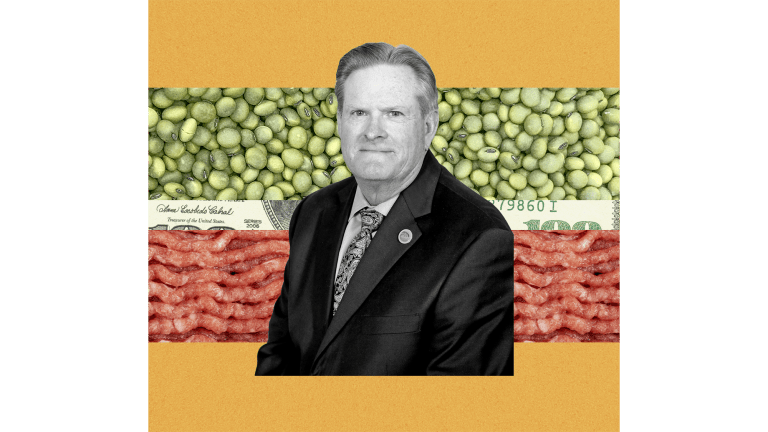A while ago I wrote a column full of solemn statements from august scientists and other wise persons, warning that we are trashing our planet at a sickening pace. The august persons didn’t say “trashing” or “sickening.” They spoke of “adverse consequences” and “significant geopolitical risk.”
An Alert Reader (to steal a phrase from Dave Barry), a retired professor of French named Chuck Ferguson, who sees this column in the Central Maine Morning Sentinel, found it strange that folks should be yelling the equivalent of “PLANETARY FIRE!!!” in such unemotional, academic language. He was “inspired … to do some wildcat editing, in my opposition to bureaucratese. I hope you can afford a few moments to enjoy this layman’s look at the big issues.”
Here are some of the original warnings, Ferguson’s edits, and some even more radical edits of my own.
World Resources Institute, 1998: “Most high-quality agricultural land is already in production, and the environmental costs of converting remaining forest, grassland and wetland habitats to cropland are recognized … Much of the remaining soil is less productive and more fragile … One analysis of global soil erosion estimates that … topsoil is being lost 16 to 300 times faster than it can be replaced.”
Chuck Ferguson: “Farmers are already using most of the Earth’s fertile land. What’s left is mainly forest, grassland, and marsh. The soil in these places is less productive and soon wears out. Around the world topsoil is being lost 16 to 300 times faster than it is recovering.”
DHM: We are using up our land and soil.
U.N. Comprehensive Assessment of the Freshwater Resources of the World, 1997: “Water constraints and water degradation are weakening the resource bases on which human society is built. Water shortages and pollution are causing widespread public health problems, limiting economic and agricultural development and harming a wide range of ecosystems. They may put global food supplies in jeopardy and lead to economic stagnation in many parts of the world.”
Ferguson: “Our very lives depend on water. By overusing and polluting water we spread disease, hamper the economy, and damage the environment. For lack of clean water, much of the world faces hunger and poverty.”
DHM: We are overusing and polluting our water supplies.
World Commission on Forests and Sustainable Development, 1999: “There has been a clear global trend toward a massive loss of forested areas … The current trends are toward an acceleration of the loss of forested areas, the loss of residual primary forests, and progressive reduction in the internal quality of residual forest stands … Much of the forest that remains is being progressively impoverished, and all of it is threatened.”
Ferguson: “All over the world, forests are disappearing faster and faster. We are losing old-growth forests and the forests that remain are becoming less healthy. Many forests are being turned into a single tree species for industrial use, and all the forests are threatened.”
DHM: We are destroying our forests.
World Scientists’ Warning to Humanity, 1992: “Our massive tampering with the world’s interdependent web of life — coupled with the environmental damage inflicted by deforestation, species loss, and climate change — could trigger widespread adverse effects, including unpredictable collapses of critical biological systems whose interactions and dynamics we only imperfectly understand. Uncertainty over the extent of these effects cannot excuse complacency or delay in facing the threats.”
Ferguson: “People are devastating the environment. We are destroying forests, driving species to extinction, and changing the climate. Whole plant and animal systems may die before we understand how they function. Since we don’t understand what we are doing, it is inexcusable for us to dismiss or ignore signs of danger.”
DHM: We are wrecking nature without understanding how it works or how it supports us.
Colin J. Campbell and Jean H. Laherré, oil-industry geologists, 1998: “Our analysis of the discovery and production of oil fields around the world suggests that within the next decade, the supply of conventional oil will be unable to keep up with the demand … Global discovery peaked in the early 1960s and has been falling steadily ever since … There is only so much crude oil in the world, and the industry has found about 90 percent of it.”
Ferguson (noting that industry folks need less editing than government folks): “We have studied oil production and prospects around the world. We think that demand for oil will exceed supply within 10 years. Oil discovery peaked in the early 1960s and has been falling steadily ever since… There is only so much crude oil in the world, and the industry has found about 90 percent of it.”
DHM: We are about to have oil shortages.
Two thousand economists (six of them Nobelists), 1997: “The balance of evidence suggests a discernible human influence on global climate. As economists, we believe that global climate change carries with it significant environmental, economic, social and geopolitical risks, and that preventive steps are justified.”
Ferguson: “Humans are almost certainly disturbing the climate of the Earth. We believe that climate change is a threat to the environment, to society, and to international relations. We recommend taking action.”
DHM: We are messing up our climate.
Maybe, if the thousands of knowledgeable people who issue sober, important warnings speak more clearly, we and our media and our leaders will start paying attention to them. Or maybe not. What do you think?


